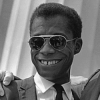James A. Baldwin

James A. Baldwin
James A. "Jim" Baldwinwas an American football player, track athlete, coach of football, basketball, and baseball, and college athletics administrator. He served as the head football coach at Rhode Island State College—now the University of Rhode Island, the University of Maine, Trinity College in Durham, North Carolina—now Duke University, Lehigh University, and Wake Forest University, compiling a career college football record of 41–32–14. Baldwin was also the head basketball coach at the same five schools, amassing a career college basketball...
NationalityAmerican
ProfessionAuthor
Date of Birth2 August 1924
CountryUnited States of America
Ask any Mexican, any Puerto Rican, any black man, any poor person - ask the wretched how they fare in the halls of justice, and then you will know, not whether or not the country is just, but whether or not it has any love for justice, or any concept of it. It is certain, in any case, that ignorance, allied with power, is the most ferocious enemy justice can have.
A civilization is not destroyed by wicked people; it is not necessary that people be wicked but only that they be spineless.
Not everything that is faced can be changed, but nothing can be changed until it is faced.
The making of an American begins at that point where he himself rejects all other ties, any other history, and himself adopts the vesture of his adopted land.
In conclusion we may say, in view of the confirmation that our study has given of the parallelism between individual and racial thought of the Self, that in the history of psychology we discern the great profile which the race has drawn on the pages of time.
After an interval of two and a half centuries, the tradition of mystic illumination renewed itself in Italy and Germany.
The reason of the close concurrence between the individuals progress and that of the race appears, therefore, when we remember the dependence of each upon the other.
Feeling is the consciousness of the resulting conditions - of success, failure, equilibrium, compromise or balance, in this continuous rivalry of ideas.
The fact that tradition hinders the individual savage from thinking logically by no means proves that he cannot think logically.
All along we find that social life - religion, politics, art - reflects the stages reached in the development of the knowledge of self; it shows the social uses made of this knowledge.
The prehistorical and primitive period represents the true infancy of the mind.
The development of the meaning attaching to the personal self, the conscious being, is the subject matter of the history of psychology.
Like all science, psychology is knowledge; and like science again, it is knowledge of a definite thing, the mind.
In Socrates' thought the two marks of individual self-consciousness appear; it is practical and it is social.